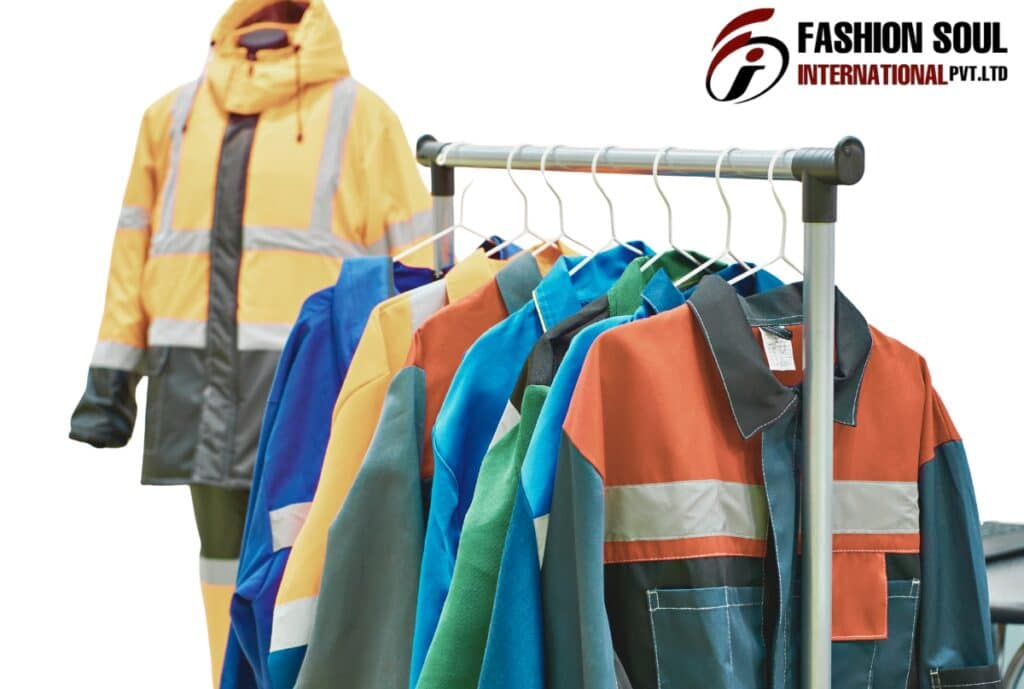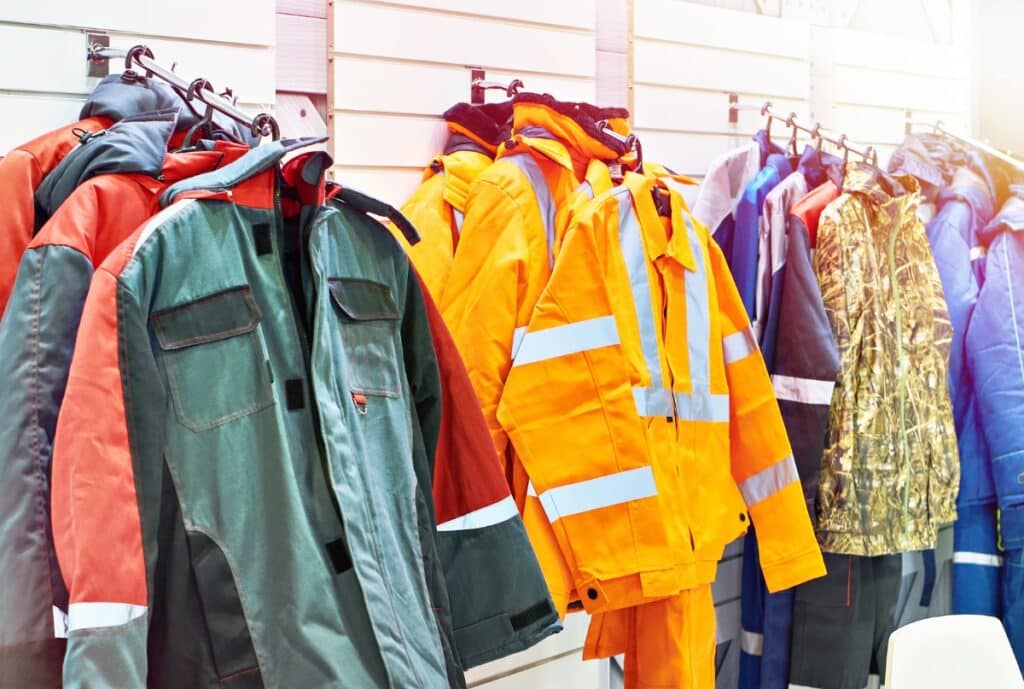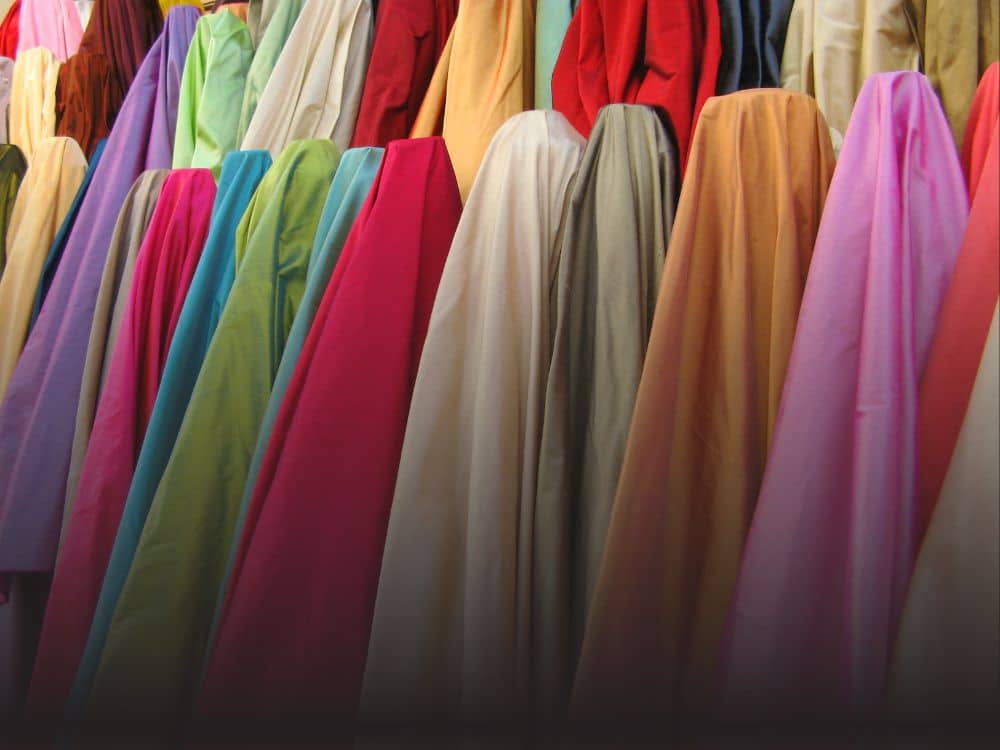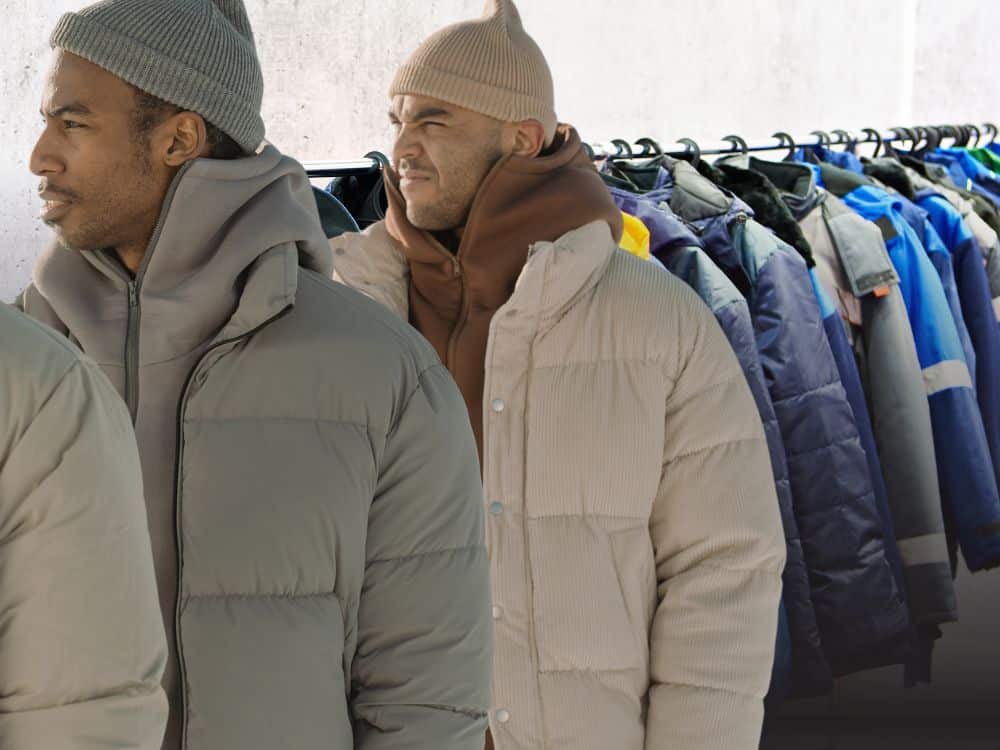Industrial Workwear
In numerous sectors across the globe, there is an absolute need for industrial workwear. It ensures the safety of employees, reinforces industrial safety policies, and fosters corporate identity. Such clothing is protective and adequate for strenuous, high-risk, and demanding workflows. Proper industrial workwear includes coveralls, jackets, safety boots, gloves, and the like. From factories to construction sites, these garments enable the workers to work safely and productively. Each item of the uniform has its own importance. Without proper industrial workwear, employees face safety and health risks that may result in reduced productivity and increased accident.

Role of Industrial Workwear in Contemporary Industrial Settings
Industrial workwear is vital in today's workplace. It is designed to safeguard employees from burns, cuts, chemicals, and extreme temperatures. Different businesses have different requirements. For instance, construction workers require safety helmets and reflective vests. Factory workers may require fire-resistant suits and heavy-duty gloves. Appropriate industrial workwear mitigates these risks without hindering productivity. It enhances workplace confidence and augments mental focus on the task at hand.
In addition to safety, industrial workwear fosters order and discipline. Uniforms create a psychological bond to work or to a specific organization, and workers move with intention and pride. In addition, workwear helps identify these roles at a glance. Supervisors can spot staff and therefore direct them with greater efficiency. Many companies place their logos on the workwear. This is a way to market the company while at the same time projecting professionalism. Industrial workwear is a critical component of the daily operations of a firm.
Categories of Industrial Workwear
Each industrial workwear has its role. It varies from job to job and the dangers therein. A common example of industrial workwear is the coverall. It protects against dust, oil and heat. Workers in the manufacturing, oil, and chemical industries often wear these. Work jackets are another example. These are made with durable fabrics and have reflective strips. Workers in cold and outdoor settings wear jackets for warmth and protection. Reflective jackets are good for outdoor workers as they enhance visibility, especially in the dark.
Other popular items include work pants and work shirts. These items are made using fabrics that are hard to tear, stretch, or get stained. Work pants have several pockets to hold tools. Work shirts are strong as well as breathable.The Safety is important as well. Safety boots with steel toes are essential in the industrial setting as they protect against falling objects. A Safety footwear with slip resistant soles prevents falling on wet ground. Slip resistant shoes are important as well. Safety goggles and hard hats are important as well. These items enhance safety for the hands, head, and eyes. Enhancing safety is the prime reason for industrial workwear.
Common Fabrics Used in Industrial Workwear
Workwear designed for industrial occupations demands tough and reliable fabrics. Cotton is breathable, soft, and a common choice for industrial use. Unfortunately, it does not handle chemicals or flames. To overcome this, many companies blend cotton with synthetic fabrics. Another favorite is polyester, which is strong, does not wrinkle, and dries quickly. Many industrial workwear garments combine polyester and cotton to achieve comfort and durability. Such blends are ideal for long shifts in factories and warehouses.
Nylon is also popular. It is often used in jackets, rainwear, and cold-weather clothing. It resists abrasions and stretches without tearing. Then there is denim, a thick cotton fabric used for pants and aprons. For more hazardous jobs, fabrics that are flame resistant are essential. These materials protect against fire, extreme heat, and sparks. Electrical, welding, or oil workers depend on them. The nature of the job, prevailing weather, and safety considerations determine the choice of fabrics to use for industrial workwear.
Essential Features Characterizing Quality Industrial Workwear
There are distinguishing factors that make workwear stand out from each other. To begin, the workwear has to stand out from its contemporaries and must have a reputation it must stand alongside. High quality items have stand out features, and for workwear, it must have pockets, for the items being carried do not have to be placed in bags. Breathable fabrics, soft inner layers, and a good fit all together assist in reducing fatigue, thus achieving comfort. The workwear must be steadfast to wear and tear and be able to endure daily industrial equipment use.
Most importantly, the items need to withstand the burning, chemical, or cuts, thus the clothing must be able to withstand industrial wear and tear. Ripping, fading, and shrinking must not occur during washing post use either. Flexibility is just as important as fabrics that have the ability to stretch and not restrict movement. Workers have to bend and lift items and do a great deal of movement. Last but not the least, safety and performance are equally as important, thus all clothing must fit properly and allow movement. This aids in guaranteeing equipment is not snagged while insufficient clothing is not too tight. This is the same for work pants, thus all clothing must fit evenly.
Choosing the Appropriate Industrial Workwear for Your Business
Picking industrial workwear requires consideration of several elements. To begin, evaluate the type of work. Is there exposure to fire, chemicals, or manual lifting? Each of these hazards requires different levels of protection. Think about the workplace as well. Indoor positions might require lightweight fabric, while outdoor work may require rainproof or thermal clothing. Determine if there are applicable legal or workplace safety regulations for the industry. Clothing fulfills those basic requirements for safety, while also helping to shield the business from legal trouble.
Consider comfort as well. Garments have to be worn for hours on end. Strained clothing causes a dip in focus and energy. Different sizes and fittings influence comfort levels. In the case of ill fitting uniforms, the workplace may present a safety risk. Seek for garments that have adjustable features such as elastic waistbands or Velcro cuffs. To foster proper fit, offer trial sizes before bulk ordering. Lastly, if customization is a priority, select vendors that allow for customization. Custom logos and brand colors foster professionalism and a sense of identity. Following these steps will provide the best industrial workwear.
How Industrial Workwear Optimizes Business Productivity
Workwear serves a deeper purpose than safety; it has multifunctional benefits for a business as well. First, it offers a professional image for the company. It shows the company values order and quality. Clients always trust a company that looks organized and prepared for work. Moreover, industrial workwear helps foster team spirit. Workers feel a sense of belonging when they wear the same clothes and work together, which boosts teamwork for better results.
In addition, safety gear minimizes accidents. Work-related injuries and illnesses have a direct financial impact on an organization, and an absence of injuries translates to a greater number of sick days taken. This leads to greater productivity and lower delays. Protected workers also demonstrate greater confidence, resulting in quicker and smarter work. Businesses enjoy spending less money for long-term gains. Better quality industrial workwear translates to less frequent replacements and, paired with reduced accidents and downtime, leads to increased profits. For these reasons, investing in quality industrial workwear is always a beneficial decision.
Industrial Uniforms by Occupation
Every line of work has different requirements for workwear. Construction employees are required to wear helmets, gloves, steel-toe boots, and high visibility vests. Their work includes lifting, sharp tools, and working at heights. Factory employees work with machines, and there are chemical hazards. They require flame-resistant materials and durable gloves. Workers in oil and gas fields face greater hazards. They require to be protected from fire and toxic materials. Full body coverage is required. This is where industrial workwear is most important.
Workers in warehouses require visibility and comfort. They handle the movement of goods and operate forklifts. Their workwear should be lightweight, and has to have safety stripes. Electricians work with wires, sparks, and hot items. Their clothes have to protect them from burns and electric shock. Even automotive employees need to be protected from sharp items, heat, and grease. These individuals, referred to as mechanics, wear coveralls, gloves, and slip-resistant shoes. Industrial workwear is required in all fields as it is essential in helping protect individuals as well as aiding them do their jobs better.
Customization in industrial Workwear
Today, many companies prefer bespoke industrial workwear that corresponds with their brand. Personalization, in this case, customization, makes a workwear more familiar. You can choose the colors, logos, and slogans that represent the brand. This fosters a cohesive appearance and solicits brand recognition. Some firms go as far as personalizing uniforms with the workers’ names. This fosters trust and helps the customers identify staff. Bespoke uniforms aid in developing a corporation’s strong identity.
Wearing customized workwear distinguishes a company’s team from the rest. It demonstrates the care a company pays for the details. This attention helps in elevating the worker’s morale. Employees take pride in their company when the uniforms are tailored to specifications. This service is now offered by most suppliers for industrial workwear. You can receive design proposals, samples, and place bulk orders. Sustained elegance and good looks are ensured when a custom workwear is prepared with quality stitching and durable prints. Workwear branding, even though is simple, is powerful.
Proper Care and Maintenance of Industrial Workwear
Proper care is needed if you want to extend the life of industrial workwear. Always observe the care guidelines indicated on the labels. Washing at the correct temperature ensures that fabrics do not get damaged. Stubborn stains must be treated promptly. Avoid harsh cleaning agents that can either weaken the fabric, its fire resistance, or its protective qualities. For garments that have reflective strips, washing them inside out ensures the reflective portions remain functional.
Always ensure that workwear is dry before storing. Damp clothes promote the growth of mold and other unpleasant odors. Workwear should be stored in clean, dry areas that are not exposed to direct sunlight. Regular inspections of the clothing and stitching should also be conducted. Minor issues like small tears or loose stitching can spiral into much larger concerns. Fixing them promptly will save costs. Garments that no longer provide safety should be replaced. Industrial workwear that is well-maintained will ensure safety at all times and also be cost-effective.

Fashion Soul International provides one-stop B2B solutions to help startups build their brand.

Latest Trends in Industrial Workwear
Like any other field, industrial workwear is advancing. The development of smart wearables integrates the new technology. These can monitor temperature, heart rate, or track an individual’s location. Such devices are instrumental in large industrial sites as they can protect workers in real-time. There is also an increase in eco-friendly fabrics. Many companies are now using recycled polyester or organic cotton to curb wastage. Sustainable workwear allows businesses to go green without compromising on performance.
Another trend involves gender-specific designs. Previously, most industrial work attire was produced for men. Nowadays, more businesses develop designs tailored to women. This increases comfort as well as confidence among female employees. Another trend is the use of lightweight, multi-layer materials. These fabrics offer protection while providing the needed flexibility. In the future, industrial work clothing will continue to evolve, integrating style, safety, and sustainability more effectively.
At Fashion Soul International Pvt. Ltd., we are pioneers in eco-friendly and green fashion. We take immense pride in claiming that we sustain fashion at every level. Therefore, we craft products that transcend beauty by upholding multi-dimensionally positive ecological values. Outstanding quality, transparency and mindful manufacturing are the cornerstones of trust we build – and that is exactly why our clients keep coming back.
We select materials that are organic, recycled, and biodegradable.
Timeless, quality apparel designed for minimal waste.
Our production facilities ensure safe working conditions.
Unique brand identity through personalized labels, and designs.
Premium quality assured through inspection before shipping.
Fashion Soul International Support: Always here to help you.
Be updated with extensive & unique blog by reading trending fashion and textile related updates.




